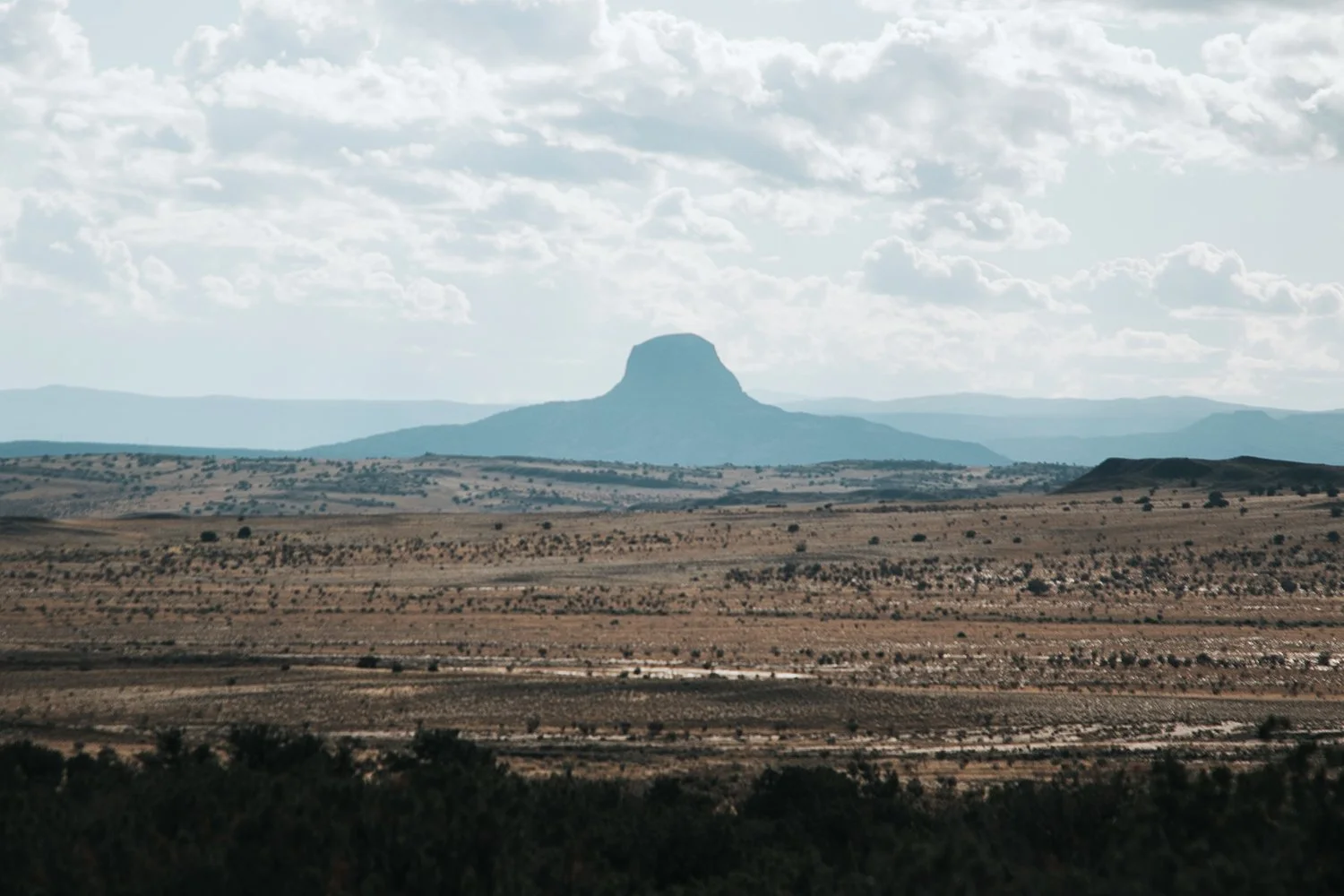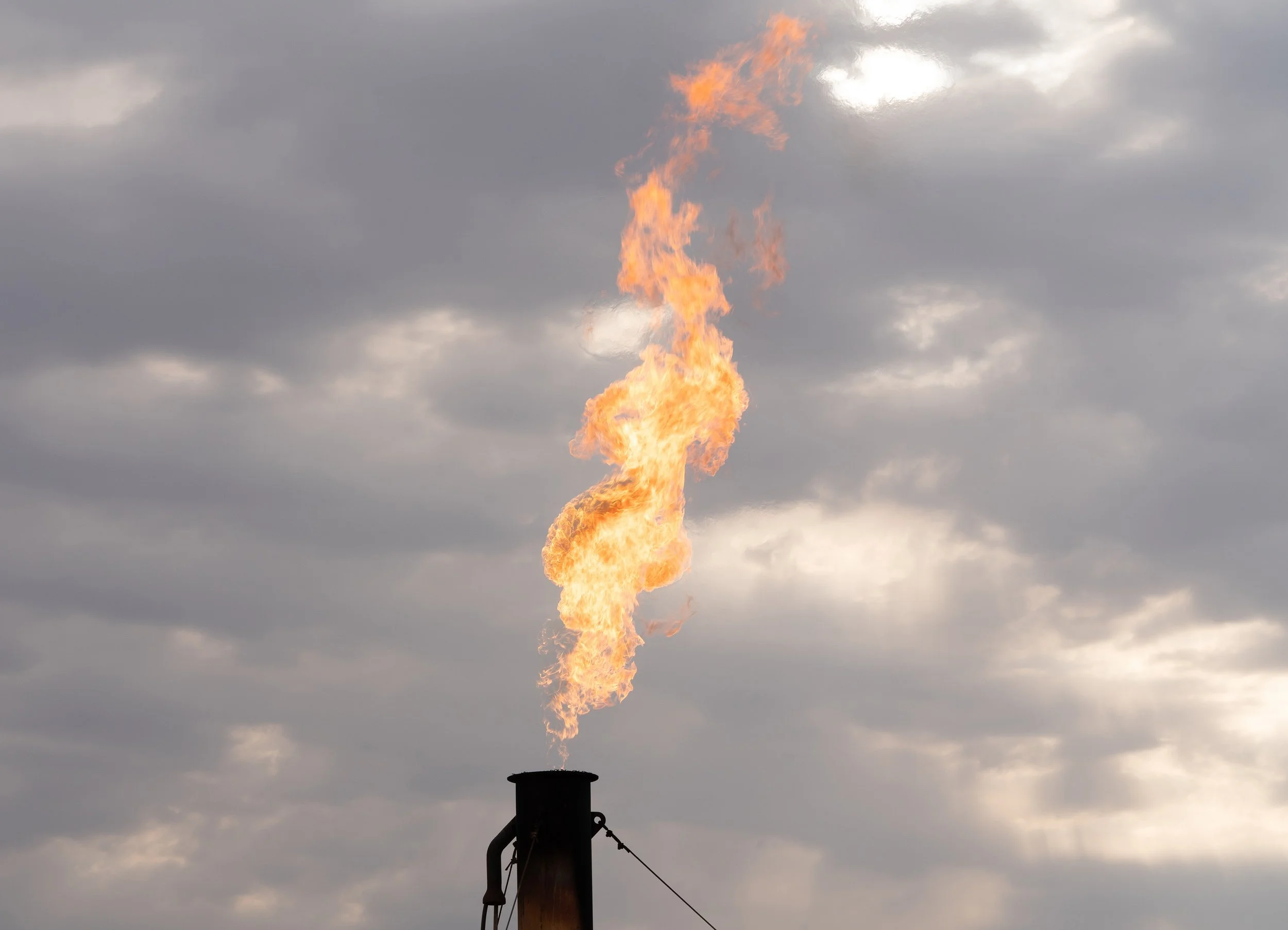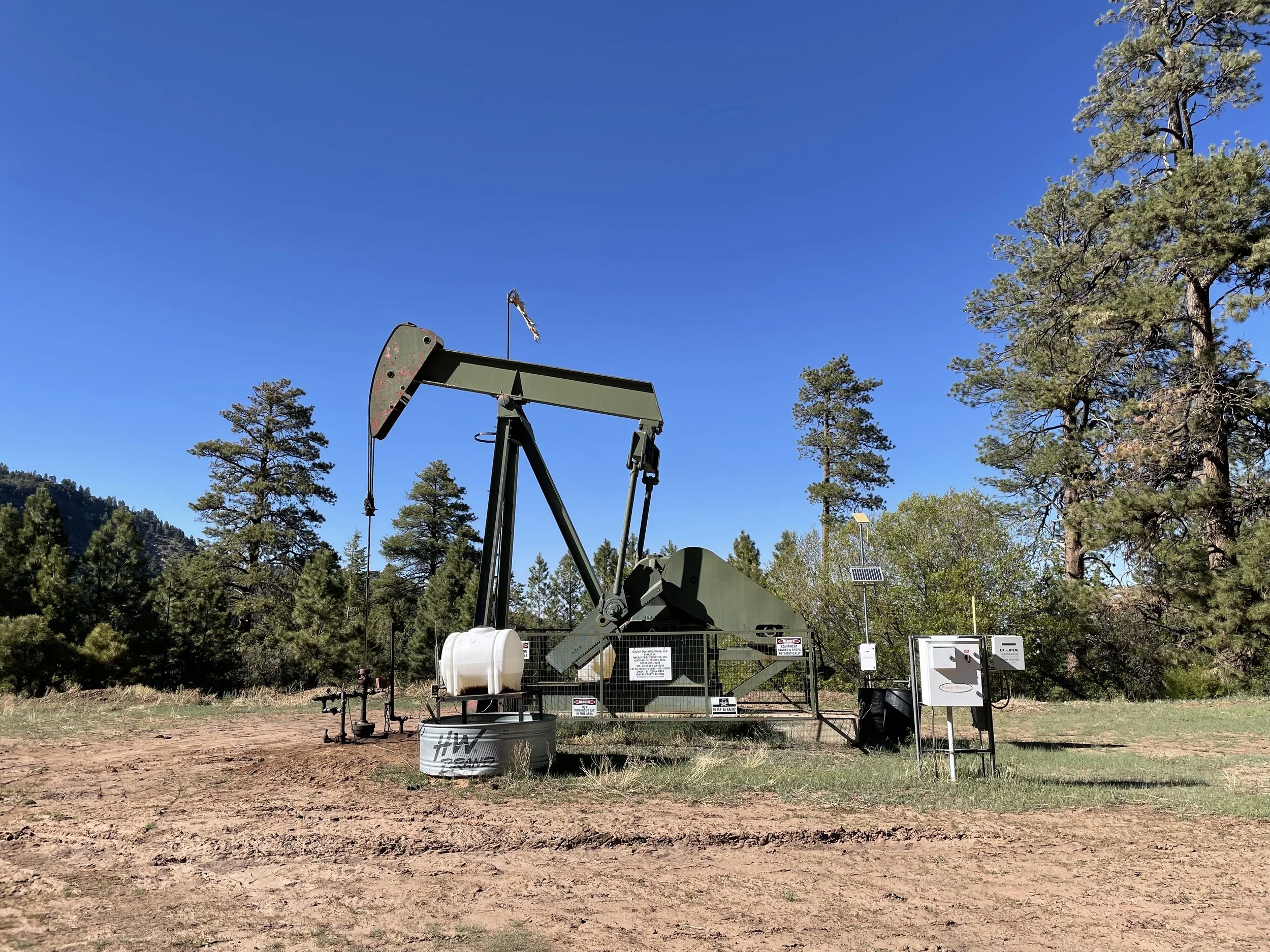
My current book project, Patchwork: Land, Law, and Extraction in Greater Chaco, is a study of oil and gas extraction, settler land management practices, and energy futures in the Greater Chaco Landscape of northwestern New Mexico.

Developing a digital archive of the Indigenous-led fight to protect Eastern Diné lands from extraction while documenting community knowledge of place and climate change. With Mario Atencio, Leola Paquin, Lani Tsinnajinnie, and Torreon Community Alliance. With support from the Center for Engaged Scholarship.

What does extraction have to do with transphobia? What does climate justice have to do with queer and trans liberation? My current research examines relationships between extractivism and the production and policing of sexed and gendered normativity in the United States, through an examination of imbricated processes of settler colonialism, racial capitalism, science, and law. This work is centered on the gendered and racialized politics of decarbonization in New Mexico.

In collaboration with members of the Greater Chaco Coalition and the media group Spoken Image, I co-produced and co-wrote the award-winning documentary film, Our Story: The Indigenous Led Fight to Protect Greater Chaco. The film premiered at festivals internationally in 2021 and is also available for educational screenings. It can be streamed on Kanopy, which is accessible via most public library memberships, as well as Tubi and Amazon.

Examining the responsibilities that land grant universities have towards Indigenous Peoples through an archival exploration of the San Joaquin Marsh Reserve at the University of California, Irvine, on Acjachemen and Tongva homelands. With Sacred Places Institute for Indigenous Peoples (Ciara Belardes, Gabriella Lassos, Angela Mooney D’Arcy,) Stephanie Martinez, Christina Marsh, and with support from UCI’s Research Justice Shop and the Wildland-Urban Interface Climate Action Network.

Research and forthcoming documentary film about the history and effects of helium extraction on the Navajo Nation, led by Diné C.A.R.E.






My current book project, Patchwork: Land, Law, and Extraction in Greater Chaco, is a study of oil and gas extraction, settler land management practices, and energy futures in the Greater Chaco Landscape of northwestern New Mexico.
Developing a digital archive of the Indigenous-led fight to protect Eastern Diné lands from extraction while documenting community knowledge of place and climate change. With Mario Atencio, Leola Paquin, Lani Tsinnajinnie, and Torreon Community Alliance. With support from the Center for Engaged Scholarship.
What does extraction have to do with transphobia? What does climate justice have to do with queer and trans liberation? My current research examines relationships between extractivism and the production and policing of sexed and gendered normativity in the United States, through an examination of imbricated processes of settler colonialism, racial capitalism, science, and law. This work is centered on the gendered and racialized politics of decarbonization in New Mexico.
In collaboration with members of the Greater Chaco Coalition and the media group Spoken Image, I co-produced and co-wrote the award-winning documentary film, Our Story: The Indigenous Led Fight to Protect Greater Chaco. The film premiered at festivals internationally in 2021 and is also available for educational screenings. It can be streamed on Kanopy, which is accessible via most public library memberships, as well as Tubi and Amazon.
Examining the responsibilities that land grant universities have towards Indigenous Peoples through an archival exploration of the San Joaquin Marsh Reserve at the University of California, Irvine, on Acjachemen and Tongva homelands. With Sacred Places Institute for Indigenous Peoples (Ciara Belardes, Gabriella Lassos, Angela Mooney D’Arcy,) Stephanie Martinez, Christina Marsh, and with support from UCI’s Research Justice Shop and the Wildland-Urban Interface Climate Action Network.
Research and forthcoming documentary film about the history and effects of helium extraction on the Navajo Nation, led by Diné C.A.R.E.